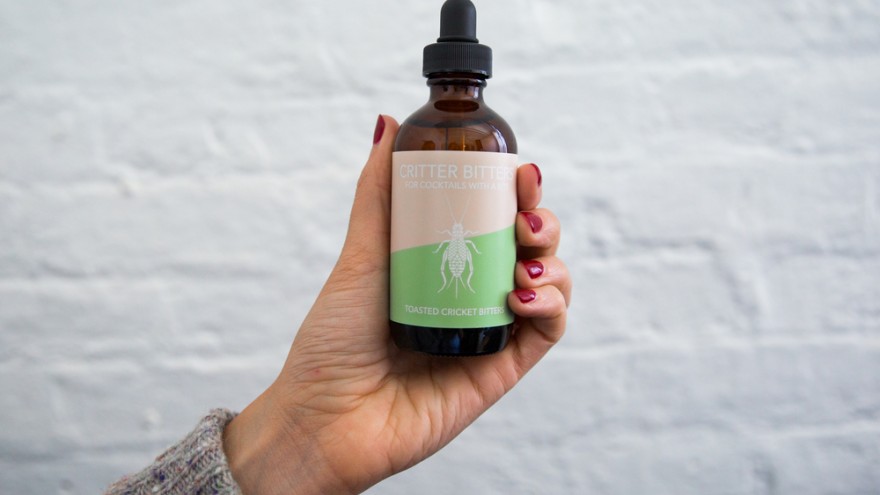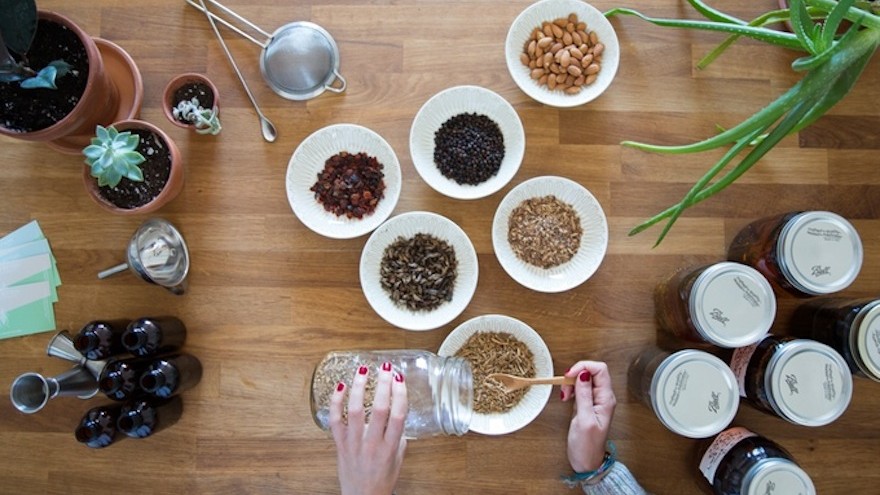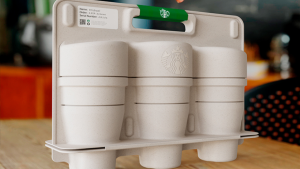From the Series
Lucy Knops and Julia Plevin, both graduates of the School of Visual Arts, have designed Critter Bitters, a new insects-as-food product that fuses cricket into cocktail bitters.
The designers created Critter Bitters in response to a report called "Edible Insects: Future Prospects for Food and Feed Security” released by the Food and Agriculture Organisation of the United Nations (FAO) two years ago.
The report proposed that we re-evaluate what we eat and how we produce it to meet the food and nutrition challenges of the present and the future. As the title suggests, the FAO was directly proposing that we look at insects as a possible solution because insects like crickets are packed with more protein than beef and require a fraction of the land, water, and feed as livestock.
Entomophagy, the human consumption of insects as food, is common in some cultures. Eating leafcutter ants is traditional in some regions of Colombia and northeast Brazil, fried silkworm pupae are sold by street vendors in China, and caterpillars are eaten in some Southern African regions.
Knops and Plevin researched Entomophagy and discovered that in the Western world, people suffered a psychological barrier that prevented them from viewing insects as food. So, rather than adopt other traditions' rituals around eating insects, the two young designers created an all-American Entomophagy experience.
Critter Bitters is a “gateway” to Entomophagy. The handcrafted cocktail bitters are made with toasted crickets, vanilla, cacao and toasted almond and can be used in the same way as traditional cocktail bitters. “Critter Bitters take ‘the ick factor’ out of entomophagy,” say Knops and Plevin. “Cocktails won't save the world, but eating bugs might.”
Critter Bitters has already proved to be popular. Knops and Plevin have launched a Kickstarter campaign to assist them in scaling up their production.










